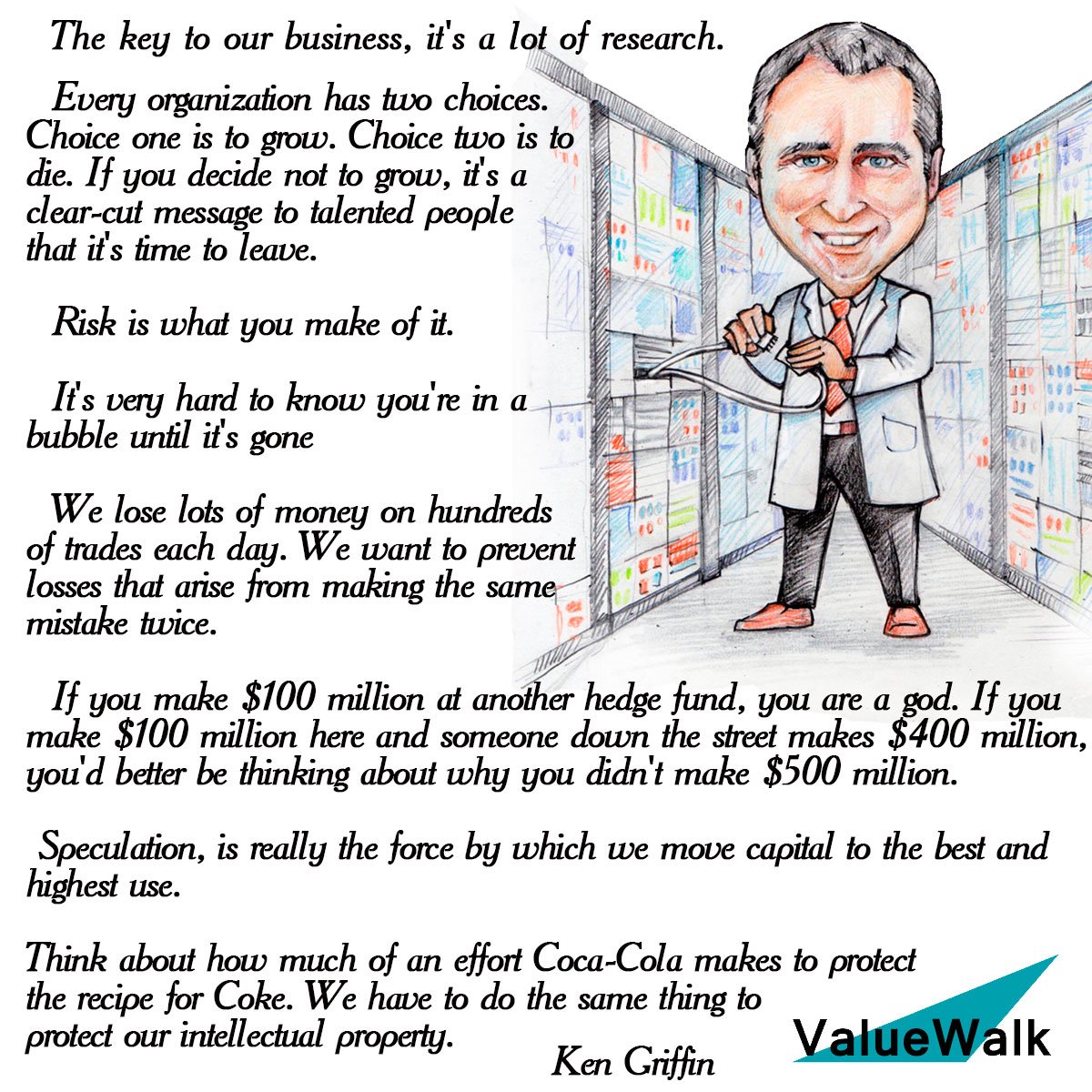Jim Coulter, co-founder and co-chief executive officer at TPG Capital, Mary Callahan Erdoes, and Ken C. Griffin, Citadel, discuss institutional investment strategy with at the Bloomberg Global Business Forum in New York on Sept. 26, 2018.
Ken C. Griffin: The Global Investment Outlook In A Late Stage Cycle
Q2 hedge fund letters, conference, scoops etc
Transcript
Ken C. Griffin what lessons would you draw from the past if the post crisis experience particularly through your eyes and those of your colleagues that sit in them so just just to go back to marriage commentary.
I agree that Morgan was incredibly fortunate to only suffer a crisis of confidence. It's a real statement about the management team that you had a morning the time that your core business was largely unscathed. But many of your contemporaries incurred tens or hundreds of billions of dollars of losses related to their Babyland portfolios. And that's really the the cause the Great Financial Crisis it wasn't that Lehman Brothers blew up over a weekend. It's that we had laid the kindling wood throughout the financial services system with the enormity of losses that were going to come from both subprime mortgages and from leveraged finance jumping forward over the last 10 years. What have been some of the salient salient ways to prosper. Number one has been this huge shift in one's core competency moving away from just fundamentals to understanding the political realm. We've gone through in the Great Financial Crisis an alphabet soup of programs by the U.S. and European governments and the Japanese as Mary pointed out intended to unleash the animal spirits. So quantitative easing has really bad. How do we encourage Americans and Europeans to take more risk. And there is no doubt that by the metrics that governments have been incredibly successful. If we look at levered loan statistics for example we're at an all time record in both the issuance of high yield debt and at the lack of covenants in this debt. So ironically in the 10 year anniversary of the failure of the U.S. financial system we are in this debt fuelled buying binge that is pushing up valuations that is that is laying again the seeds for the next crisis. So just to summarize the crisis it wasn't about Lehman Brothers it wasn't about the investment banks. It was about the collapse the US housing market were millions of Americans lost trillions of dollars. It was a it was a national economic catastrophe. But the post financial crisis the salient change has been the way that all of us have to place what's going to happen in Washington. What's going to happen at the European Central Bank as compared to strictly the fundamentals of the businesses or assets that we invest in. And that's been a real change over 10 years frankly not one for the better.
I just want to chime in on one thing Ken said because you talked about Ken being a market maker. He's one of the largest in the world. That's a really important fundamental shift from where we were before the Great Financial Crisis. He just talked about the amount of debt that has increased in the world the amount of debt that has increased as three to four fold. Three to four fold the groups that used to make that work going back and forth and make markets i.e. step in when no one else is there where the banks they have shrunk their holdings by law from a trillion and a half to a trillion.
So by a third now. So when we need liquidity in the future comes in different places yes but guess what he is he's not a bank.
He's a fiduciary. He has a fiduciary obligation to care only about his investors and his shareholders. He's doesn't have an obligation to step in and make markets for the sake of making markets.
It will be a very different playbook when we go through the liquidity crunch that eventually will come. Will it.
I think this is always an interesting argument that we hear from our friends in the banking industry which is what is the role that we're going to play in the next great great market correction. And if you replay history. Go to any period






